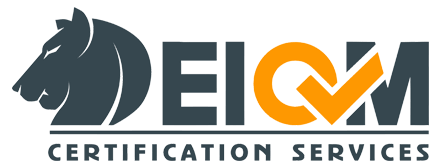ISO/TS 29001 sets out the criteria for establishing, implementing, and improving a quality management system within the oil and gas industry. It aims to enhance operational efficiency, reduce risks, and ensure conformity to customer requirements. By implementing This standard, organizations can demonstrate their commitment to quality and differentiate themselves in a highly competitive market.
Introduction
The oil and gas industry is characterized by its complex operations, stringent safety regulations, and the need for consistent quality. To meet these demands, ISO/TS 29001 was developed as a sector-specific extension of the ISO 9001 quality management system. This standard is specifically tailored to address the unique challenges faced by the oil and gas sector.
Understanding ISO/TS 29001
In the dynamic and demanding field of oil and gas industries, adhering to strict quality standards is crucial to ensure safe and efficient operations. One such standard that has gained recognition worldwide is ISO/TS 29001. This article delves into the significance of This standard and how it enhances the quality management systems in the oil and gas sector.
Benefits of ISO/TS 29001
The adoption of ISO/TS 29001 brings several advantages to oil and gas companies. Firstly, it helps streamline processes, resulting in improved efficiency, reduced costs, and increased productivity. Secondly, it enhances risk management capabilities, enabling organizations to identify, assess, and mitigate risks effectively. Additionally, This standard fosters a culture of continuous improvement and customer focus, leading to enhanced customer satisfaction and loyalty.
Implementation Process
Implementing ISO/TS 29001 requires a systematic approach. The first step involves understanding the standard and its requirements. Next, a gap analysis is conducted to identify areas that need improvement. Organizations then develop an implementation plan, allocate resources, and define roles and responsibilities. Following that, the quality management system is established, documented, and communicated to all employees. Regular audits and assessments are conducted to ensure compliance and drive continual improvement.
Key Requirements
ISO/TS 29001 places emphasis on several key requirements, including:
Management Commitment
- Top management must demonstrate leadership and commitment to quality.
Risk Management
- Organizations must identify, assess, and mitigate risks to ensure operational integrity.
Documented Procedures
- Documented procedures must be established and maintained to ensure consistency and standardization.
Competence and Training
- Competency requirements should be defined for all personnel, and appropriate training programs must be implemented.
Product Quality
- Organizations must establish processes to monitor and control product quality throughout the entire supply chain.
Integration with Other ISO Standards
ISO/TS 29001 can be integrated with other ISO standards, such as ISO 14001 for environmental management and ISO 45001 for occupational health and safety. Integration allows organizations to streamline their management systems, eliminate duplication, and drive efficiency across multiple areas of their operations.
Case Studies
Several oil and gas companies have successfully implemented ISO/TS 29001 and reaped its benefits. Case studies highlighting the experiences of these organizations can provide valuable insights into the practical application and impact of the standard.
Challenges and Solutions
While implementing ISO/TS 29001, organizations may encounter challenges such as resistance to change, resource constraints, and complexities associated with process integration. However, these challenges can be addressed through effective change management strategies, adequate resource allocation, and collaboration among various stakeholders.
Future of ISO/TS 29001
As the oil and gas industry continues to evolve, ISO/TS 29001 will evolve as well to meet the changing needs and emerging trends. The standard will likely incorporate advancements in technology, digitalization, and sustainability, enabling organizations to stay ahead of the curve and drive continual improvement in their operations.
Conclusion
ISO/TS 29001 plays a pivotal role in ensuring the quality, safety, and efficiency of operations within the oil and gas industry. By adhering to this standard, organizations can establish robust quality management systems, gain a competitive edge, and enhance customer satisfaction. Implementing This standard is a strategic decision that demonstrates a commitment to excellence and positions organizations for long-term success.
Contact EIQM
To contact us, please fill out the form below. We will contact you as soon as possible. You can also apply through this form if you would like to receive system certification or representation of EIQM Certification Body.

